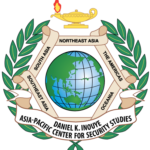By: Binoj Basnyat (ASC 11-2)
The world has become more unpredictable with the COVID-19 pandemic and the losses it is causing. Nation states focus on their measures and regional intergovernmental organizations look for collective efforts while the World Health Organization vigorously works to provide answers. Whether interagency, political level of governance, bilateral, multilateral or global; rapid action and cooperation and coordination are the key to tackle and control COVID-19.
Indian PM Modi asked the South Asian Association for Regional Cooperation (SAARC) to face the pandemic challenge. The SAARC leaders’ virtual interaction provided information on measures and internal preparedness as well as an opportunity to collectively move forward with cooperation and coordination. Unfortunately, Heads of State missed the opportunity to communicate country strategies and propose regional procedures to mitigate both direct and indirect affects at the strategic level. SAARC leaders are looking for a model to face the pandemic that can act as an extraordinary example. This could lead to formulating other models for collaborative and collective efforts on common challenges in regional security.
Although Nepal only has 6 cases, the WHO has put it in the high-risk category for its potential to be affected. Nepal quarantined itself and suspended visa-on-arrival and imports of edible items from China. Land crossing points with India and China have been reduced and tourist arrivals by air to Nepal are minimal. Chinese tourist arrival was expected to reach 350,000 in 2020 but stopped and all hotels are empty. The Asian Development Bank estimates that Nepal is likely to shave off up to 13% of its gross domestic product and lose 15,880 jobs. The Nepalese Army successfully quarantined evacuated Nepalese from China, but more is on the way to be prepared with preventive, preparation and post eventualities. National security will be at risk if cooperation between Health, Finance, Diplomacy, Defense, Law Enforcement Forces and Intelligence Agency’s does not prevail.
The need to move swiftly to reduce transmission with policies is the remedy. Deep engagement is needed with individuals, families and the community. The adoption of proven strategies by nation states, geographic regions and inter-continental is essential. It is time to look into the national security and other impact in the economy, schools and communities. The government must move fast with no regrets. In emergency management, perfection is the enemy of the good and speedy decisions are essential. The problem is that decision-makers are afraid of making mistakes and the consequences of error, but the greatest error is indecision and paralysis due to fear of failure.
Nepal can never be immune to the COVID-19 developments. The challenge will be to keep our fatality rate as low as possible and take containment measures more harsh which will assist the already stressed public health system. Nepal has done well in containment. Now mitigation must enforce social distancing close schools, shops, cinemas, ban public events, even shut down mass transit systems. Second as the public health network is not good, the government needs to be prepared for infrastructure, financial arrangement with equipped forces if the pandemic hits.
The government should look into the economy that has impacted the stock market, tourism and travel, which is at the lowest due to containment. If the situation deteriorates and lockdown occurs there will be major disruption of economic activity including trade. The Government has to take advantage of the lessening of the oil prices. The worst scenario is a prolonged lockdown, such as that in India. A lockdown will affect Nepal severely and significantly impact the country’s economy, supply and resources. One of the most important impacts will be a slow down of remittances and the return of a large number of Nepalese working in other countries.
The Ministry of Foreign Affairs could coordinate with the SAARC Secretariat that is in Kathmandu to establish groups and sub groups as operational components at capitals of member states for effectiveness of measures and supply of basic essentials to all South Asians.
A strategic central body with political and strategist could be established with an operational mechanism at the Provincial level which will direct the Local political bodies to be accountable to the people for containing and mitigating through prevention, preparedness and execution. This is a potential war so with political unity the country is united to face the global challenge.
Published: April 1, 2020
Category: Crisis Updates from the Region
Volume:
Author:





